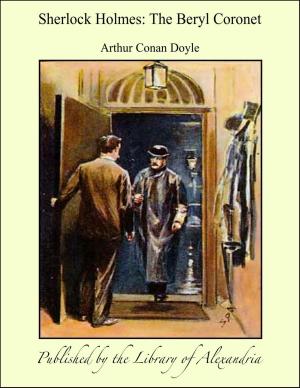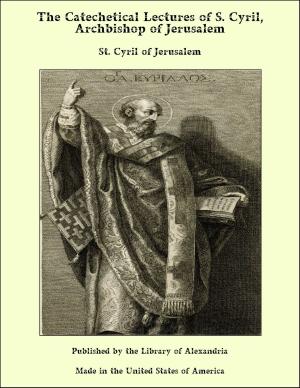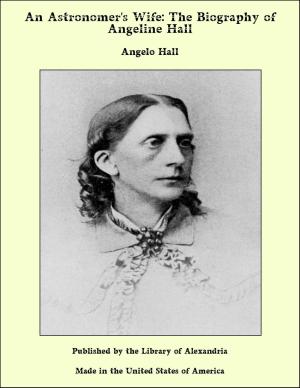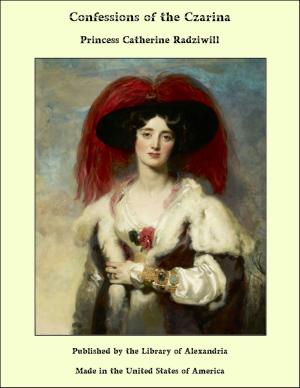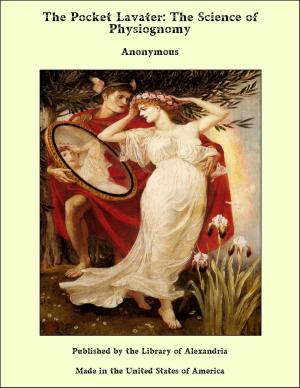The Selected Short Works of Frederick Merrick White
Nonfiction, Religion & Spirituality, New Age, History, Fiction & Literature| Author: | Frederick Merrick White | ISBN: | 9781465616371 |
| Publisher: | Library of Alexandria | Publication: | March 8, 2015 |
| Imprint: | Language: | English |
| Author: | Frederick Merrick White |
| ISBN: | 9781465616371 |
| Publisher: | Library of Alexandria |
| Publication: | March 8, 2015 |
| Imprint: | |
| Language: | English |
The era of peace which seemed to be well-begun in 1906 was naturally marked by an extraordinary commercial and financial activity; an amount of world-wide speculations never equalled in intensity, even in the mad times of the South Sea Bubble, or when Hudson, the Railway King, flourished. The countless millions piled up in English banks earning a 2? per cent. interest were lavishly withdrawn, new mines had been started, everybody was going to be rich. On the face of it people had good grounds for their sanguine expectations. The Rand with its forty square miles of of rich gold-bearing reefs containing an untold number of immense fortunes - the richest region on earth - was properly administered for the first time. From the highest to the lowest everybody was investing their savings in South Africa. In other words, there was a tremendous “boom.” Nothing like it had ever been seen in the history of commerce. It was the golden hour of the promoter. Yet, for the most part, the schemes promised well. There was, however, an enormous amount of rubbish ion the market. Some of the more thoughtful financiers scented danger ahead, but they were not listened to. The roar of the Kaffir circus resounded in men’s ears and made them mad. Park Lane would never be able to hold the new millionaires. All England was in the grip of the mania. Bona fide speculation and business had become gambling pure and simple. London thought of nothing else. The City was crammed with excited buyers and operators, the little outside broker of yesterday came down to his office behind a pair of blood horses, and his diamonds were a solid sign of his new prosperity. A busy day was drawing to a close. Carl Ericsson sat in his office smoking a cigarette. Ericsson yesterday had been waiter in an unimportant restaurant. Today he had a fine set of offices and a small mansion at Hampstead. He had “arrived” on the crest of the wave as many far less astute adventurers had done. There was a peculiarly uneasy grin on his dark features, a curious twitching of the lips, and he had the tired eyes of the sleepless. His partner sat opposite him behind a big cigar. He was a fat man with a big jaw and a merciless mouth. Six months before Eli Smith had been a fairly well-to-do suburban butcher. Now he was E. Asherton-Smith, the big financial agent. He boasted, with truth, that he could sign a cheque for Ł40,000 and be none the worse for it. In the area of the City it would have been difficult to find two choicer specimens of rascality than the partners in Ericsson & Co.
The era of peace which seemed to be well-begun in 1906 was naturally marked by an extraordinary commercial and financial activity; an amount of world-wide speculations never equalled in intensity, even in the mad times of the South Sea Bubble, or when Hudson, the Railway King, flourished. The countless millions piled up in English banks earning a 2? per cent. interest were lavishly withdrawn, new mines had been started, everybody was going to be rich. On the face of it people had good grounds for their sanguine expectations. The Rand with its forty square miles of of rich gold-bearing reefs containing an untold number of immense fortunes - the richest region on earth - was properly administered for the first time. From the highest to the lowest everybody was investing their savings in South Africa. In other words, there was a tremendous “boom.” Nothing like it had ever been seen in the history of commerce. It was the golden hour of the promoter. Yet, for the most part, the schemes promised well. There was, however, an enormous amount of rubbish ion the market. Some of the more thoughtful financiers scented danger ahead, but they were not listened to. The roar of the Kaffir circus resounded in men’s ears and made them mad. Park Lane would never be able to hold the new millionaires. All England was in the grip of the mania. Bona fide speculation and business had become gambling pure and simple. London thought of nothing else. The City was crammed with excited buyers and operators, the little outside broker of yesterday came down to his office behind a pair of blood horses, and his diamonds were a solid sign of his new prosperity. A busy day was drawing to a close. Carl Ericsson sat in his office smoking a cigarette. Ericsson yesterday had been waiter in an unimportant restaurant. Today he had a fine set of offices and a small mansion at Hampstead. He had “arrived” on the crest of the wave as many far less astute adventurers had done. There was a peculiarly uneasy grin on his dark features, a curious twitching of the lips, and he had the tired eyes of the sleepless. His partner sat opposite him behind a big cigar. He was a fat man with a big jaw and a merciless mouth. Six months before Eli Smith had been a fairly well-to-do suburban butcher. Now he was E. Asherton-Smith, the big financial agent. He boasted, with truth, that he could sign a cheque for Ł40,000 and be none the worse for it. In the area of the City it would have been difficult to find two choicer specimens of rascality than the partners in Ericsson & Co.



